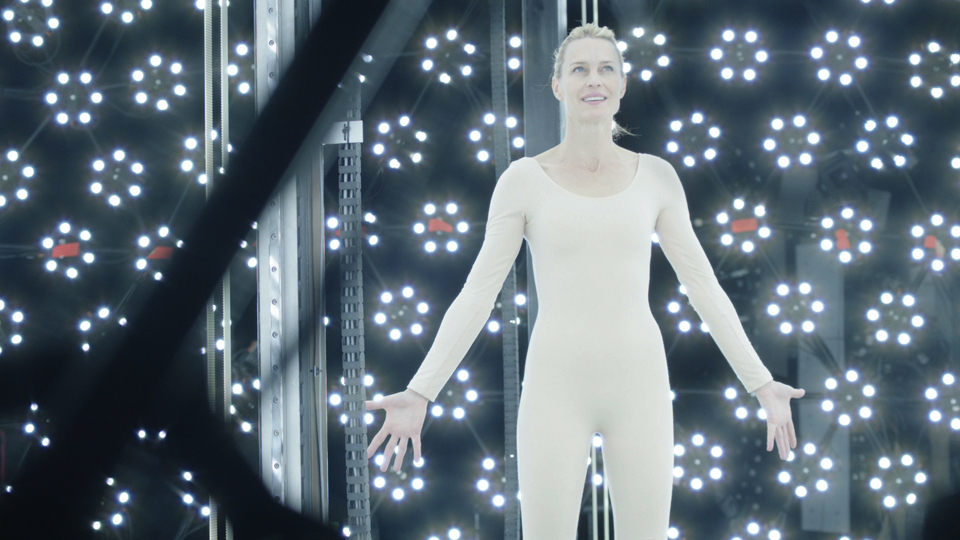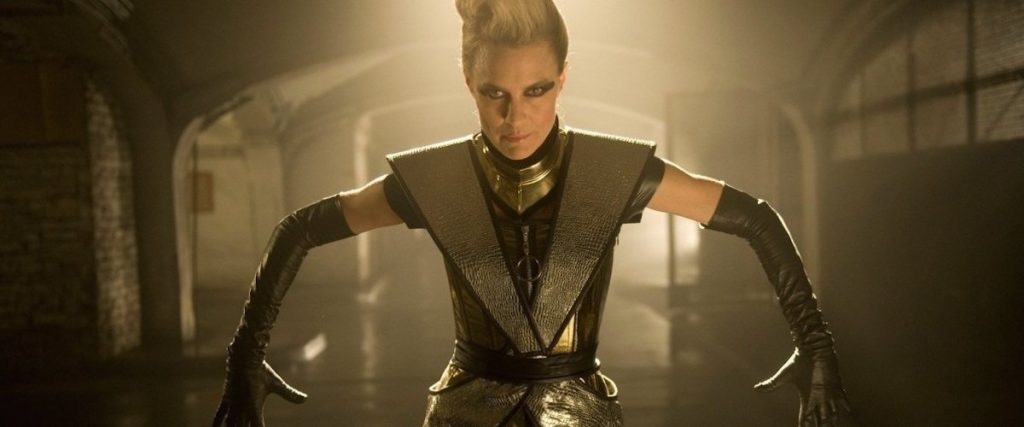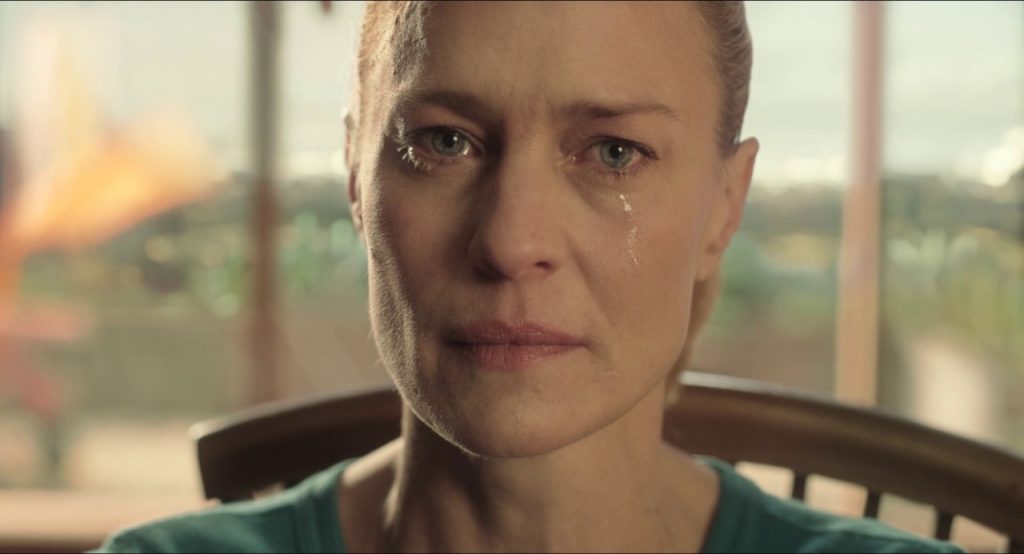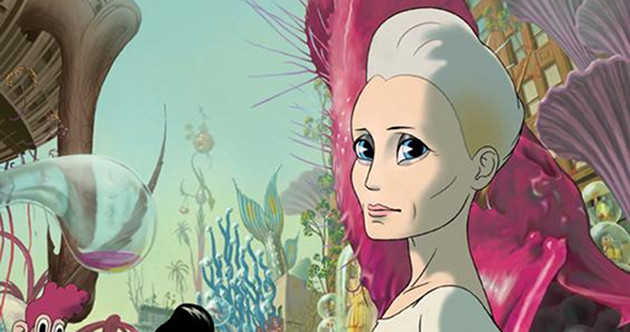
Premise
“The Congress” (2013) is a very bizarre avant-garde film starring Robin Wright who plays a future version of herself during a time when what it means to be an actress is evolving in Hollywood. She is pressured into giving away the rights to her likeness to production company Miramount who can then use a digital version of her body however they wish. As technology advances, so does the way her essence is used by consumers. She navigates politics, uprisings, and drugged-up realities in order to try to reunite with her son who suffers from Usher syndrome.
2013 vs 2022
I did not understand this movie when it first came out. The animated world we explore in the second half was hard for me to understand as a teen, and it is off-putting for anyone upon a first viewing. However, because I watched it, it has made me pay closer attention to the CG actors and deepfakes we are seeing now. As with most Sci-Fi films, the exact technology that is used in the future isn’t precisely the same, but the concepts and issues are still very relevant. This is why this movie has been weighing on my mind and I have to talk about it.

Deepfakes
What is a “deepfake”? They are synthetic media composed of existing images and audio clips in order to modify someone else’s likeness in a deceptive way. While this is most often used informally on social media, we see in newer Star Wars content–“The Book of Boba Fett” being the latest–that by using the same technology, old characters are coming back as their younger selves to continue stories that weren’t explored in the past. The mainstream discussion expresses concern that this can be unethical and illegal without the person’s consent. I fear that this kind of technology is problematic on a deeper level in two ways despite the level of consent an actor gives.
1. Objectifying Actors
When an actor is portrayed digitally, we no longer see the person behind the character, just the character itself that is owned by a studio. I believe acting, though a façade, is supposed to be very real and tangible at its best. We are touched by performances where an actor is giving their all to convey a real emotion. Isn’t that why we have so many memes of Leonardo DiCaprio’s most expressive moments in his films? Sure, the character is important, but so is the actor behind them. In “The Congress,” Wright relinquishes doing something meaningful with her life by contractually not being allowed to work, and by becoming invisible to the world as her forever young digital version is on ginormous screens everywhere she turns. If actors are pressured into following this same path, I find this damaging to their lives, as well as opening a problematic way for audiences to view celebrities as a product not a person.

2. Cheap Solution
I don’t mean this in how this kind of technology is inexpensive; far from it! The moral issue is that we are using technology to avoid problems that are a reality of life–like aging and dying. The biblical story of the Tower of Babel has been on my mind since I recently watched “Metropolis” (1927). The Tower of Babel is a cautionary tale about trying to get to heaven in a way that relies on the strength of man in order to defy God. Avoiding the fact that human actors age and die by using technological means is doing just that. It is natural to fear mortality, but the negative of that fear is balanced by the positives brought by feeling pressure that encourage us to live.
In our latest Utah FilmPod episode, we discuss the shows that we’ve been streaming, and the show I most recently finished was “The Good Place.” It is one of the very few shows I consistently enjoyed the whole way through. One thing I found very interesting was how they explored what eternity feels like and what it does to a person. Through this, they show how humans need to still feel some kind of pressure and that there has to be an end in order to incentivize growth, development, and a search for true joy. Even in a show that exists after death, they still need to create an afterlife version of mortality to give their characters a sense of purpose and direction.
Side of Truth
A larger scale problem is that it is harder to fix the real world, so the easy solution is to create a new, but false world, which is what we see today. Take virtual reality as an example for providing all we need for work, play, and social connections, all in a fictitious setting. “The Congress” shows a dystopian society that (like ours) wants to avoid discomfort and death at all costs, even if the cost is that it keeps them from living. They end up living completely in their heads, which becomes a valid reality they call one of the “sides of truth” that they can cross over to and avoid the real world. On that side, it is all about sensation rather than action. Don’t we all fall into that same cycle of just living for the weekend, for the next show to drop, or for something pleasantly delicious and distracting? Does that actually end up being a satisfying way to live?
Watch this movie, see the connections to what is happening in the entertainment industry today, and ask yourself
“What side of truth do I want to be on?”
Parent’s Guide
As a quick note, this film is Not Rated, but it would most likely receive an R-rating for its use of the f-word.
It is on the free streaming service Tubi and is available to rent on other platforms.


